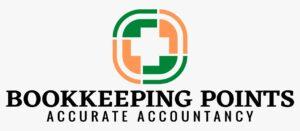Cash basis accounting and accrual accounting are two common methods used to record financial transactions in a business.
Cash basis accounting:
- Records financial transactions only when cash is received or disbursed.
- Simple and easy to understand.
- Cash inflows and outflows are recorded in the accounting records when the cash is received or spent.
Example: A business owner sells goods worth $1,000 in January but only receives payment in February. Under the cash basis accounting method, the revenue is recorded in February when the cash is received.
Accrual accounting:
- Records financial transactions when they are incurred, regardless of when payment is received or made.
- Provides a more accurate picture of a company’s financial position by recognizing revenue and expenses in the period in which they are incurred.
- Complies with Generally Accepted Accounting Principles (GAAP) and is used by most businesses for tax purposes.
Example: A business owner sells goods worth $1,000 in January and sends an invoice to the customer. Under the accrual accounting method, the revenue is recorded in January when the goods are sold and the invoice is sent, even if the payment is received in February.
In summary, cash basis accounting is simpler and focuses on cash transactions, while accrual accounting is more complex but provides a more accurate picture of a company’s financial position.
Advantages of Cash Basis Accounting:
- Simplicity: Cash basis accounting is straightforward and easier to understand compared to accrual accounting.
- Cash Flow Focus: This method focuses on actual cash inflows and outflows, making it easier to manage and predict cash flow.
- Reduced Record Keeping: Since transactions are only recorded when cash changes hands, there is less record keeping required, making it easier to maintain records.
Advantages of Accrual Accounting:
- Better Financial Picture: Accrual accounting provides a more accurate picture of a company’s financial position by recognizing revenue and expenses in the period in which they are incurred, not just when payment is received or made.
- Compliance with GAAP: Accrual accounting complies with Generally Accepted Accounting Principles (GAAP) and is used by most businesses for tax purposes.
- Improved Budgeting: Accrual accounting provides a better understanding of future cash requirements, as it considers accounts receivable and payable, making it easier to budget for future expenses.
- Better Decision Making: Accrual accounting provides more complete financial information, making it easier for a business owner to make informed decisions about the business’s financial position.
In conclusion, the choice between cash basis and accrual accounting depends on the size and type of business, and the specific financial information required by the business owner. Larger businesses and those required to comply with GAAP may benefit from using accrual accounting, while smaller businesses may find cash basis accounting more manageable.






